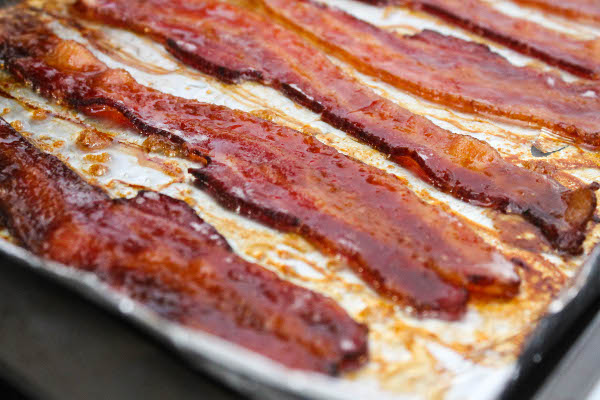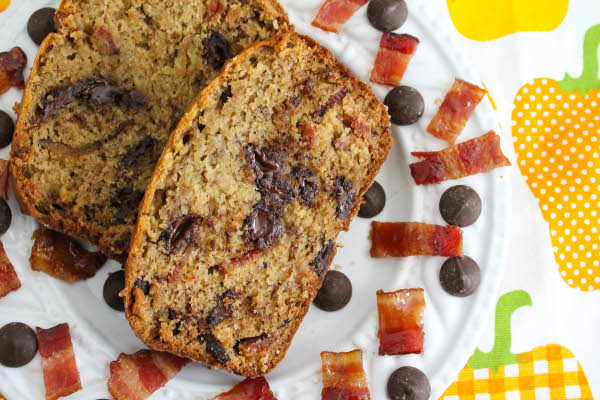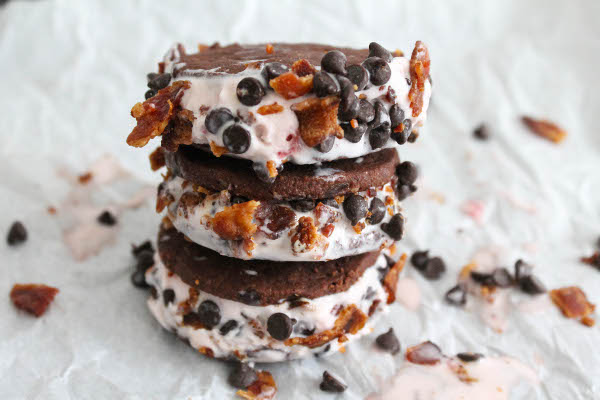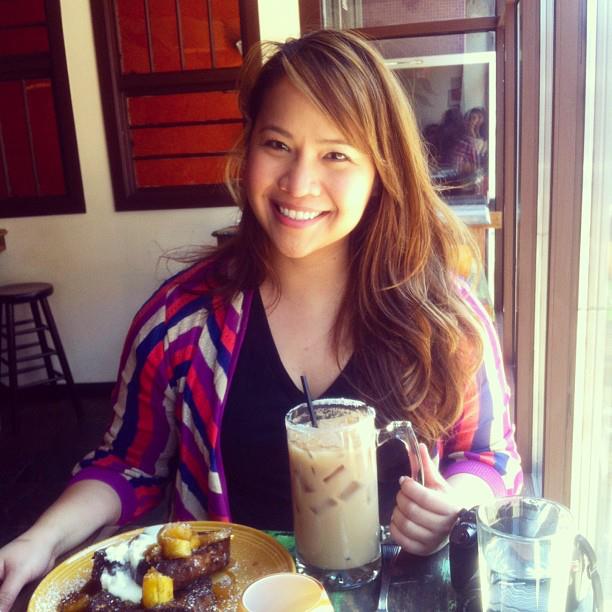Theme Essay by Bianca Garcia
Why the New Generation of Food Writers Is Making Money

At Mohegan Sun, the second largest casino resort in the United States, I checked in at the VIP lounge. Before I headed to my all-expenses-paid suite, a receptionist with perfect curls and a dazzling smile served me champagne. Later that evening, I enjoyed a complimentary meal with wine pairings at celebrity chef Todd English’s Tuscany, feasting on antipasti, pasta, steak, seafood, and a decadent molten chocolate cake.
My name is Bianca Garcia, and I’m a food blogger.
In November 2012, the casino in Uncasville, Connecticut, invited me and eight other bloggers to a “Girls’ Weekend” in exchange for blogging, tweeting, and posting on Instagram, Facebook, or Pinterest. Mohegan Sun treated us like royalty, even providing stretch limos. While such PR events don’t require bloggers to post anything on a brand’s behalf, there’s a tacit agreement that we will. And when we do enter into a contract and a paid relationship —as at Mohegan Sun—we’re required by law to disclose it. In this case, Mohegan Sun’s public relations manager and I discussed beforehand exactly the kind of coverage I’d provide.
Such sponsored content is not journalism by any stretch. Yet, for chefs and everyone else in the hospitality industry, food bloggers now have more clout than traditional restaurant critics and food editors. Even a quick search on a news aggregator like Feedly brings up thousands of results for “food blog." I started Confessions of a Chocoholic in 2008, and my blog now has 360,000 visitors a year. Two years ago, the nine bloggers at Mohegan Sun collectively racked up two million followers a month.
Fashion and travel writers have long wrestled with how much to disclose about PR junkets paid for by chambers of commerce and other corporate interests. In the past decade, bloggers have also invaded the turf of traditional lifestyle magazines. But blogging isn’t just about writers like me selling our souls for corporate communications. It’s an excellent way to make money writing about a subject that I’m passionate about. And in general, food blogging has helped grow the audience for food writing, cookbooks, and fine dining.
Take Dan Whalen, who also started his blog, The Food in My Beard, in 2008. By January 2014, he had his own glossy cookbook—Stuffed: The Ultimate Comfort Food Cookbook (Page Street/Macmillan). This April, Whalen told me that he receives dozens of emails and press releases each day. “All these brands want me to write something about them,” he says. “But I’m very choosy about what I write, knowing that I have almost half a million people reading my blog every month.”
From Cooking a Wolf to Food in Beards
 When a new restaurant opens, the chef, owners, and PR team wait anxiously for the verdict from local critics. Now, they also actively pursue reviews by food bloggers. Alyssa LaManna, a publicist for Expose Yourself PR, told me in an email interview that she likes working with bloggers on behalf of her clients because “[e]veryone has a story, and bloggers can really help us spread the word.”
When a new restaurant opens, the chef, owners, and PR team wait anxiously for the verdict from local critics. Now, they also actively pursue reviews by food bloggers. Alyssa LaManna, a publicist for Expose Yourself PR, told me in an email interview that she likes working with bloggers on behalf of her clients because “[e]veryone has a story, and bloggers can really help us spread the word.”
Food writers didn’t always have such power and influence, but in the mid-twentieth century, Mary Frances Kennedy (M.F.K.) Fisher transformed old-style restaurant criticism. Fisher wrote 27 books, including food writing classics like How to Cook a Wolf (1942). In The Gastronomical Me (1943), she explained her focus on food, noting that people often asked her, “Why don't you write about the struggle for power and security and about love, the way others do?”
They ask it accusingly, as if I were somehow gross, unfaithful to the honor of my craft. The easiest answer is to say that, like most other humans, I am hungry. But there is more than that. It seems to me that our three basic needs, for food and security and love, are so mixed and mingled and entwined that we cannot straightly think of one without the others.
Fisher’s prose gave food writing emotional weight—as did the passionate prose of A. J. Liebling of the New Yorker. Then, in 1961, the publication of Mastering the Art of French Cooking by Julia Child, Simone Beck, and Louisette Bertholle helped launch Child’s mainstream popularity and her PBS television show The French Chef. By the ‘70s and ‘80s, cookbooks and cooking shows had become a media juggernaut. Bravo's Top Chef heads into its twelfth season this fall, bolstered through the years by offshoots such as Top Chef Masters and Top Chef Desserts.
Of the blog he started in 2004, professional pastry chef and cookbook author David Lebovitz notes that he "had little idea that blogging would take off like it did, and now my blog is one of the most fulfilling, exciting things that I do.”
As of July 2014, Lebovitz’s website gets roughly 150,000 monthly visitors (150,325 unique visitors in August 2014, according to media measurement tool Compete). But he has fewer visitors than amateur cook Whalen of The Food in My Beard, whose followers religiously send him pictures and videos of their own creations, thank-you notes, and tweets about his recommendations.
Are Bloggers More Honest than Magazine Writers?
Google searches for the term “food blog” have increased 500 percent since 2004, with the term peaking in mid-2012. Yet, most industry observers measure a popular blog’s growth not just in readership, but also by its expansion to other forms of publishing, such as video, podcasts, and social media.
 Joy Wilson, who’s been blogging at Joy the Baker since 2008, has benefited more from the availability of different kinds of media than early leaders like Lebovitz and Julie Powell of Julie & Julia fame. A self-taught baker, Wilson went on to become a cookbook author and professional photographer. She stars in her own Web series, creates her own videos and podcasts, and has a partnership with an advertising network.
Joy Wilson, who’s been blogging at Joy the Baker since 2008, has benefited more from the availability of different kinds of media than early leaders like Lebovitz and Julie Powell of Julie & Julia fame. A self-taught baker, Wilson went on to become a cookbook author and professional photographer. She stars in her own Web series, creates her own videos and podcasts, and has a partnership with an advertising network.
Wilson has half a million visitors a month, which means she can influence a huge audience. But she’s not a professional chef or food journalist; she’s the “everyday girl” who writes about her troubles with her small kitchen, ex-boyfriends, and the cat licking the crumbs from her kitchen table. If she says a particular baking pan is the best pan for baking brownies—and pictures of her brownies look rustic rather than perfect—I believe her more than the big shots at Saveur. (In fact, Saveur gave Joy the Baker a Best Food Blog Award in 2013.)
Recently, I interviewed my friend and blog reader Valerie Mayo, a foodie who subscribes to dozens of food blogs and magazines. For her, a magazine recommendation feels like a paid placement, while a blogger recommendation feels like word of mouth. “I think bloggers are more honest,” she says.
Not everyone agrees. In a Bloomberg TV interview last year, Martha Stewart said:
Who are these bloggers? They’re not editors at Vogue magazine. I mean, there are bloggers writing recipes that aren’t tested, that aren’t necessarily very good, or are copies of everything that really good editors have created and done. So bloggers create kind of a popularity, but they are not the experts.
Stewart later issued a retraction after she and her own blogger network, Martha’s Circle, received a backlash of criticism. Her PR team tweeted that “Martha Stewart loves most bloggers who are great friends and trusted allies.”
But she had already missed the point. Some bloggers really are experts in their fields, and high-quality blogs covering diverse cuisines abound. There’s White on Rice, by pro food stylists and photographers Todd Porter and Diane Cu, a blog that spotlights food and travel. There’s the funny and irreverent The Amateur Gourmet by New Yorker Adam Roberts. (In Roberts’s “About” section, he says of his failed time in law school that “[w]hile most of the students around me aspired to lucrative careers as toxic tort attorneys or Supreme Court justices, I spent my days thinking about soufflé.”)
There’s Gluten-Free Girl and the Chef by Shauna James Ahern, who pioneered niche food blogging in 2005. There’s How Sweet It Is, a playfully written blog by “totally self-taught/mom-taught” Jessica Merchant. (On her “About” page, she says “[v]egetables and I are the best of frenemies. My perfect world would include none of them.”) There’s The Pioneer Woman by Ree Drummond, who is currently a star in her own cooking show on the Food Network.
And then there’s me.
Food Blogs and Freebies
While I don’t have millions of followers yet, I am considered “valuable” to corporate publicists, which gives me access to exclusive events, beta products, and loads of freebies. I work with big brands like Lindt Chocolate, Kraft Cheese, Mars, Smart Balance, and even Toyota Corolla. I’ve accepted thousands of dollars worth of perks and have been paid to write sponsored content—all of which I clearly disclose on Confessions of a Chocoholic.
 On my blog, sponsored content always has a glamour shot of the brand and links to its website. In contrast, my personal pieces are accompanied by photos of friends and family. If I create original recipes using free products, I say so. But most of the time, I mention my favorite brands and link to their sites without getting paid because I want to share my preferences with readers. Writing about all the delicious things I like is why I started my blog in the first place.
On my blog, sponsored content always has a glamour shot of the brand and links to its website. In contrast, my personal pieces are accompanied by photos of friends and family. If I create original recipes using free products, I say so. But most of the time, I mention my favorite brands and link to their sites without getting paid because I want to share my preferences with readers. Writing about all the delicious things I like is why I started my blog in the first place.
Freebies and VIP treatment certainly tempt bloggers to write gushy copy about whoever is paying them. But remember, longtime restaurant critics have been receiving complimentary meals and other perks for decades. Most bloggers don’t have the option of charging everything to a company credit card. The main difference between a restaurant review on my blog and the latest review of the same place in the Boston Globe is that I paid for my own food. And if the restaurant actually invites me to dine for free? I just order more and take more pictures. Either way, the piece I write is based on my honest opinion.
Earlier this year, I got an all-expenses-paid weekend trip to the Culinary Institute of America in New York. The trip was sponsored by Jones Dairy Farm, a company that produces all-natural bacon, ham, and other meat products. I stayed at a beautiful hotel, ate multi-course meals, took a class, and participated in a Chopped-style cooking challenge. I blogged about that experience.
A few months later, I also blogged about recipes I developed for my sponsor: “Chocolate Chip Banana Bread with Candied Bacon” and “Mini Bacon Chocolate Shortbread Ice Cream Sandwiches.” Right before my disclosure statement for the ice cream sandwiches—“I received compensation and product samples to develop this recipe for Jones Dairy Farm”—I noted:
I had to run a quick errand as soon as I finished cooking the bacon for this, and the guy next to me in line at the store leaned a little closer to me than normal as he took a big whiff of my bacon-scented hair. Bacon, making me more attractive [in] 2014.
I was paid for the recipes, but not for the personal quirks that attract my readers. And there’s nothing false about my love of chocolate and bacon. My followers read these posts because they know I mean it—and I know I make them hungry.

Publishing Information
- “Mohegan Sun Girls’ Weekend Part 1” by Bianca Garcia, Confessions of a Chocoholic, November 23, 2012.
- “Mohegan Sun Girls’ Weekend Part 2” by Bianca Garcia, Confessions of a Chocoholic, December 2, 2012.
- The Gastronomical Me by M.F.K. Fisher, originally published in 1943 (North Point Press, 1989).
- “A Brief History of Food Blogs” by Ganda Suthivarakom, Saveur, May 9, 2011.
- “About” page on David Lebovit’z website by David Lebovitz.
- “Data overview for davidlebovitz.com,” Compete: Millward Brown Digital, 2014.
- “Food blog: interest over time,” Google Trends, 2014.
- “Meet the 2013 BFBA Winners: Joy the Baker,” Saveur, May 13, 2013.
- “Martha Stewart Speaks Out: Bloggers Are Not Experts,” interview by Stephanie Ruhle of Bloomberg Television, October 15, 2013.
- “About Me” on The Amateur Gourmet by Adam Roberts.
- “About” page for How Sweet It Is by Jessica Merchant.
- “Jones Dairy Farm and the Culinary Institute of America” by Bianca Garcia, Confessions of a Chocoholic, February 22, 2014.
- “Chocolate Chip Banana Bread with Candied Bacon” by Bianca Garcia, Confessions of a Chocoholic, July 1, 2014.
- “Mini Bacon Chocolate Shortbread Ice Cream Sandwiches” by Bianca Garcia, Confessions of a Chocoholic, August 2, 2014.
Art Information
- All photographs © Bianca Garcia; used with permission.
 Bianca Garcia is the author of the food blog Confessions of a Chocoholic. Part memoir, part recipe collection, and part restaurant-review database, her blog is a chronicle of her culinary adventures—and the laughs, tears, and chocolate that come with it. She was recently sponsored by Lindt Chocolate to host a wine-and-chocolate tasting party for her friends.
Bianca Garcia is the author of the food blog Confessions of a Chocoholic. Part memoir, part recipe collection, and part restaurant-review database, her blog is a chronicle of her culinary adventures—and the laughs, tears, and chocolate that come with it. She was recently sponsored by Lindt Chocolate to host a wine-and-chocolate tasting party for her friends.
Bianca is also an advertising professional, the clerk of the TW Advisory Board, and has completed her master's degree in journalism at Harvard University. She spends her free time writing, running, practicing yoga, and catching up with her family, friends, and DVR. She thinks about dessert constantly.
Editor's Note: Bianca Garcia was not paid to mention any of the products, blogs, organizations, or companies referred to in this TW feature.
